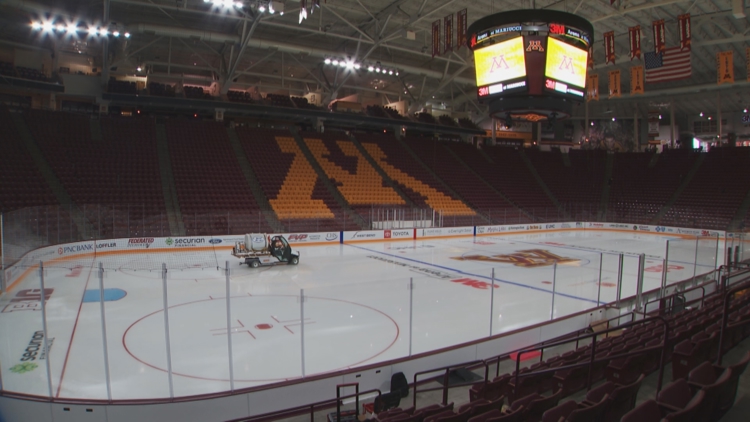ST PAUL, Minn. — A new ruling by the NCAA will open eligibility next season for players who've competed in the Canadian Hockey League, a major decision that will have implications for the six Division I programs located in the state of Minnesota.
The new policy ends a longstanding NCAA ban on players from the Canadian junior circuit, due to the compensation offered in those leagues. With the rule change, athletes who've started on the Canadian junior route will still have their amateur status preserved in case they want to make the switch to college hockey.
The Canadian junior circuit and the NCAA are two of the primary pipelines to the National Hockey League for top North American prospects, although the American developmental league known as the USHL has made significant inroads in recent decades.
Joseph Delich, the executive director of Minnesota Hockey, said the NCAA's eligibility expansion for Canadian junior players could spur a flood of prospects into American college hockey.
"Roughly 2,000 athletes that used to fall into this bucket of Canadian major junior hockey have now become eligible for D-I hockey. The player pool just got a lot bigger," Delich said. "The Gophers and the Badgers and the Buckeyes, are they going to race out and embrace this? Or will it be lesser-known D-I programs that maybe have an opportunity to grab those players that they weren't able to get before?"
The NCAA's policy shift follows a lawsuit brought by Fort Erie, Ont., native Rylan Masterson, who sued the NCAA and 10 universities after he was deemed ineligible for college hockey due to playing in two Canadian Hockey League exhibition games. The University of St. Thomas was listed among the 10 defendants and was briefly mentioned in court documents for having a policy banning Canadian junior players from competing.
Before this change, top high school prospects with NHL dreams often had to choose between the Canadian junior path or the NCAA. Crookston native Paul Bittner, for example, turned down a scholarship offer from the University of Minnesota years ago in favor of the Canadian Hockey League, which led him to be drafted by the NHL's Columbus Blue Jackets in 2015.
"My parents and I just thought it was the best decision for me at the time," he said in 2015, "for my development and the stage I was at."
It's not clear yet what the NCAA's changes will mean for players on the USHL circuit, another path to professional hockey that unlike Canadian junior hockey has always allowed players to retain NCAA eligibility. The top pick in the 2024 NHL Draft, Macklin Celebrini, played in the USHL before enrolling at Boston University.
"The USHL has done incredible work over the last 20 years in quality and caliber of play," Delich said. "I do feel like Minnesota Hockey, USA hockey, our junior system is in a very good place. We have may to adapt but I think it will remain strong."



